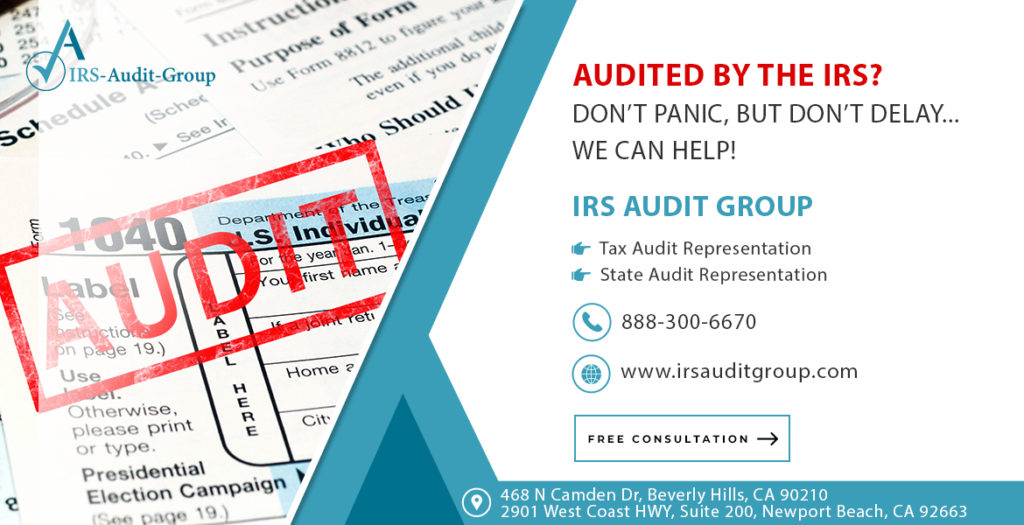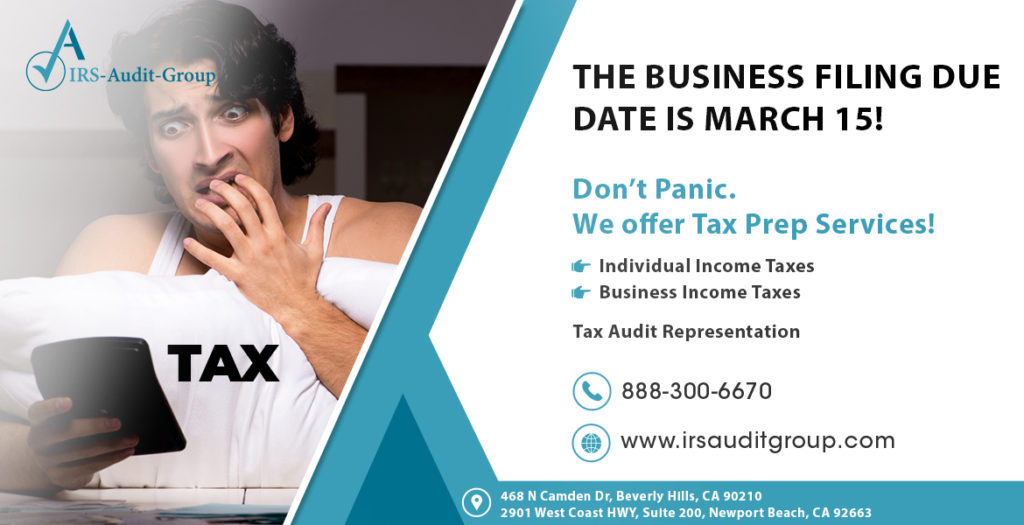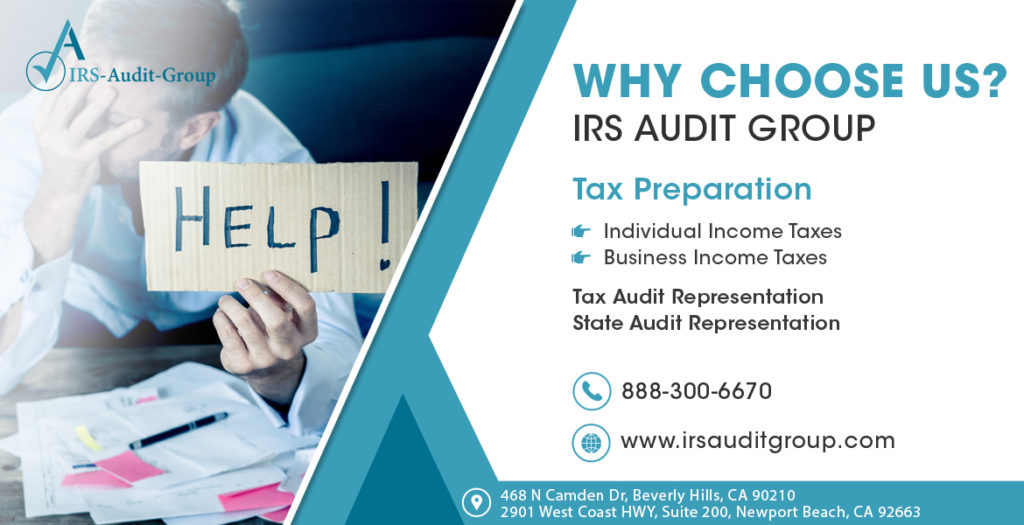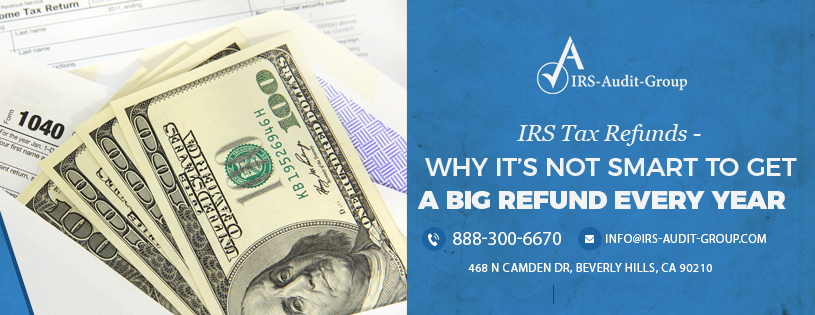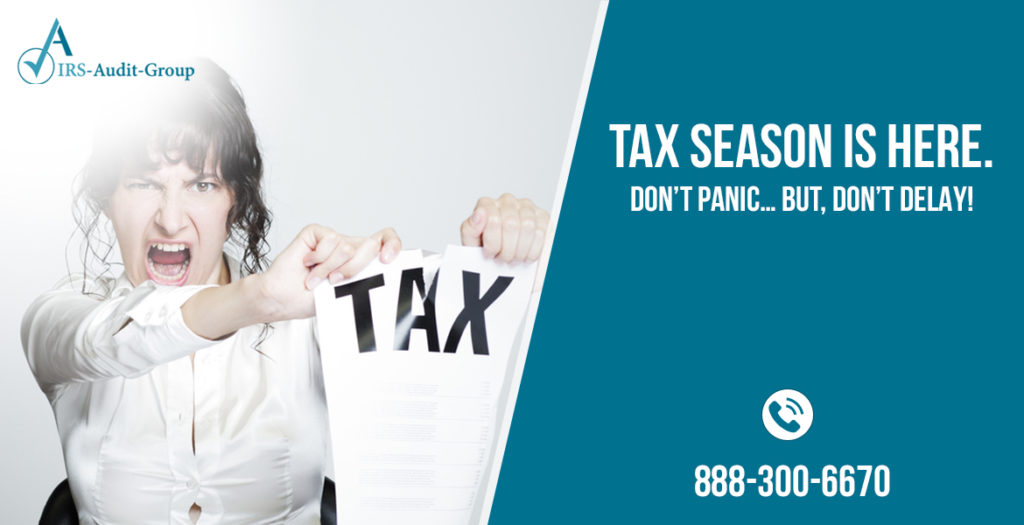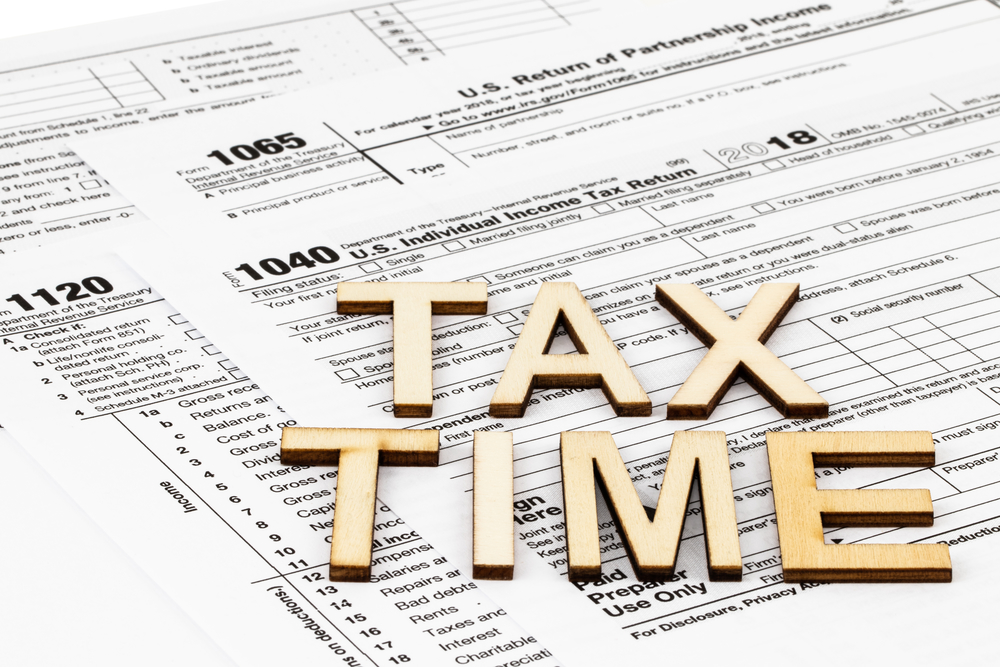Avoid Late Filing and Late Payment Penalties! Taxes Are Due on April 15th.
Filing taxes is an important part of living in the United States. If you are employed, self employed, or unemployed, you must file your taxes by April 15th. If you don’t file taxes – or file an extension – you may be penalized by the Internal Revenue Service. Filing taxes is a crucial step in living hassle free. If you skip your filings, the IRS will come after you and give you headaches that will distract you from your daily life! Instead of worrying about when are taxes due, give us a call and get them filed and over with! IRS Audit Group can help you file your taxes as soon as possible. We can even help you file extensions if you need a little more time to get your taxes together. If you contact us today, we can tell you the steps in filing your taxes, and we will make sure you bring all the necessary documents in order to make the process as easy and as efficient as possible.
Contact Us:
As a taxpayer, you deserve proper representation. We understand how hard it is to navigate through all the issues that may arise in regards to taxes, which is why we are here to help you. Regardless of the specifics, we will be there for you anytime you have an issue relating to your taxes. You can read more about us by visiting our website at IRSAuditGroup.com. Our office can be reached by email at [email protected]. You can call one of the representatives at our office at (310) 498-7508. You can even drop by one of our beautiful offices. Our Beverly Hills office is located at 468 N Camden Dr, Beverly Hills, CA 90210. Our Newport Beach office is located at 2901 West Coast Hwy, Suite 200, Newport Beach, CA 92663. Contact us today to get the representation you deserve!


